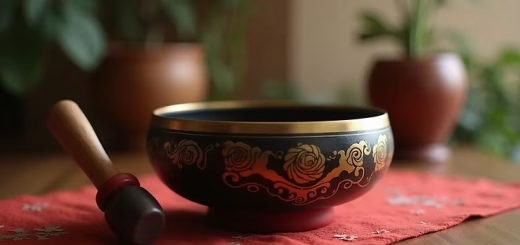Embracing The Challenge of Doubt

Doubt is something we all experience.
Embracing the Challenge of Doubt. It creeps in when we have to make decisions, often clouding our thoughts and pushing us to second-guess ourselves. While it can feel overwhelming, doubt is not always a bad thing. It can encourage us to think more deeply and push us toward growth. By learning to acknowledge our doubts and working through them, we can build resilience and discover more about ourselves and our path forward.
Understanding Doubt
At its core, doubt is a feeling of uncertainty about a belief or an action. This feeling can actually serve as a safety net, prompting us to think carefully before taking risks. However, it can also prevent us from seizing new opportunities.
- Doubt is something we all experience.
- Understanding Doubt
- The Effects of Doubt on Decision-Making
- Embracing Doubt: A Shift in Perspective
- Practical Strategies for Navigating Doubt
- The Role of Mindfulness
- Building Resilience
- Seeking Professional Help
- Real-Life Examples of Overcoming Doubt
- Finding Strength in Uncertainty
Doubt appears in various forms. For instance, self-doubt can shake our confidence in times of big life changes, such as starting a new job or moving to a new city. According to a study from the American Psychological Association, about 70% of people experience self-doubt at some point. Existential doubt might hit us when we ponder our purpose in life, leading to feelings of confusion or anxiety. Additionally, collective doubt can arise in communities facing societal changes, prompting us to question established norms.
The Effects of Doubt on Decision-Making
Doubt has a significant influence on how we make choices. When confronted with decisions, doubt can lead to overanalysing options, resulting in indecision. This paralysis can have real consequences; for example, a study by the Harvard Business Review found that 30% of professionals miss out on promotions due to indecision driven by doubt.
On the flip side, a small amount of doubt can be beneficial. It encourages us to think critically and carefully weigh the options. For example, someone weighing a career change might consider both the pros (new opportunities, potential for higher pay) and cons (loss of job security, the need for retraining), enabling them to make a more informed choice.
Embracing Doubt: A Shift in Perspective
To change how we respond to doubt, we need to reframe our perspective. Instead of seeing doubt as purely negative, we can view it as a sign of growth. Accepting doubt allows us to see it as a natural part of life, rather than something to fear.
Practicing self-compassion during uncertain times can also change our outlook. Reminding ourselves that feeling unsure is a common experience can ease some of the pressure. For example, during significant life changes, such as entering college or becoming a parent, recognising that it’s okay to feel uncertain can foster a more accepting attitude.
Practical Strategies for Navigating Doubt
While managing doubt can be challenging, several simple strategies can help.
- Acknowledge Your Doubts Start by recognizing what you feel doubtful about. Write down specific concerns. For instance, if you’re unsure about a job offer, list out what worries you—for example, company culture or job fit. By putting these thoughts on paper, you can reduce some anxiety and gain clarity.
- Seek Diverse Perspectives Talk with trusted friends, family, or mentors. Sharing your uncertainties can lead to insights. A friend’s different viewpoint may highlight strengths you hadn’t considered. This feedback can help challenge negative thoughts and inspire new ideas.
- Embrace the Unknown Lean into uncertainty. Accept that not everything is within your control and that it’s okay to feel uncertain. By doing so, you create space for exploration and curiosity.
- Reflect on Past Experiences Think back to moments when doubt influenced your decisions. How did you navigate those situations? Recognizing successful patterns can boost your confidence for future choices.
- Take Action Combat doubt with action. Even small steps toward your goals can clarify your path. For instance, if you doubt whether to start a new fitness routine, commit to a single workout. Taking that first step can build momentum.
The Role of Mindfulness
Practicing mindfulness can be a powerful ally against doubt. Mindfulness helps us stay present and lessens the grip of negative thoughts. This practice teaches us to observe our emotions without judgement, allowing us to explore our feelings with curiosity.
Mindfulness can include meditation, deep breathing exercises, or simply taking a moment to pause during your day to check in with your feelings. For instance, a few minutes of focused breathing can ground you and help reduce worry.
Building Resilience
Resilience allows us to bounce back and can be built even in the face of doubt. Fostering a growth mindset—believing we can develop our skills through effort—plays a big role in building resilience.
To strengthen resilience against doubt, consider these approaches:
- Embrace Adaptability Being flexible when facing challenges is key. See change as an opportunity rather than a threat.
- Practice Gratitude Reflecting on what you appreciate can counteract feelings of doubt. For example, keep a gratitude journal where you note three positive things each day to shift your mindset.
- Set Realistic Goals Setting achievable goals can provide a sense of progress. Breaking larger tasks into smaller, reasonable steps can make daunting projects feel manageable.
Seeking Professional Help
Doubt can sometimes be overwhelming and lead to significant emotional distress. If feelings of doubt interfere with your daily life, it may be time to seek help from a professional. Therapists can offer support and practical techniques to help you manage these feelings and empower you to take steps forward.
Real-Life Examples of Overcoming Doubt
Real-life stories can inspire us. Many public figures openly share their struggles with self-doubt, revealing that it is a common experience. For example, J.K. Rowling, the author of the Harry Potter books, faced numerous rejections and intense self-doubt before achieving great success. Her journey shows us the power of resilience.
These stories remind us that doubt is something we all face, encouraging us to see uncertainty as part of our growth.
Finding Strength in Uncertainty
Doubt is a natural part of being human, and facing it can lead to tremendous personal growth. By changing how we view and respond to doubt, we can turn it from an obstacle into an opportunity.
Implementing practical strategies, such as self-reflection and seeking support, prepares us to navigate life’s uncertainties with confidence. Embracing doubt can open doors to new experiences, ultimately enriching our lives far beyond what we initially envisioned.
- Tips For Your Tantra Practice
- Alchemical Tantra and Spiritual Transformation
- Yantra Tantra and Its Importance
- Mantra Tantra Practices
- Kriya Tantra: Its Mysteries and Practices





























